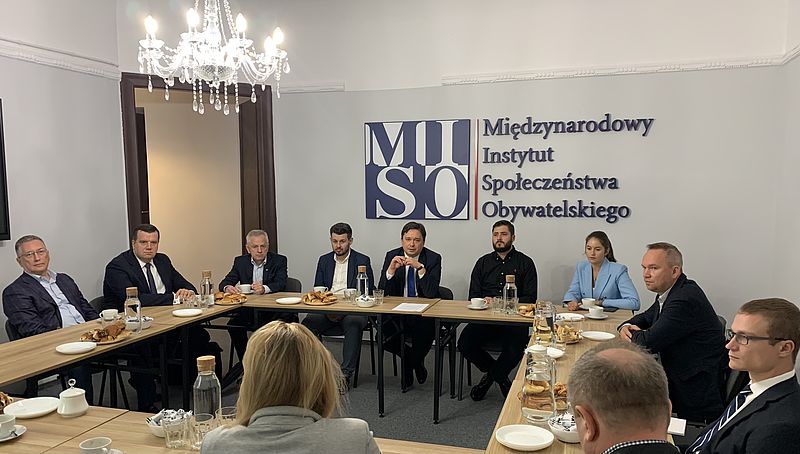MISO Breakfast with Commissioner for Human Rights
The meeting was attended by members of the MISO community, representatives of non-governmental organizations, representatives of local governments of attorneys and legal advisers, as well as diplomats and businessmen.
During the first "MISO Breakfast," we primarily discussed potential areas of cooperation with the Commissioner for Human Rights. We also talked about the condition of civil society and the situation of the third sector, as well as about activists and peaceful demonstrations, the legislation, the judiciary, social and civil dialogue, labor, election law and the uniformed services.
The Commissioner stressed that his priority was to improve the situation of people who were affected by exclusion and might feel unwell in our country. He indicated that he meant, among others, people with disabilities, those affected by the homelessness crisis, the poor, senior citizens, single-parent families, and children from rural communities. He also indicated that he discerned various systemic problems that should be considered by the parliament and the government.
An important topic that the MISO Foundation has been working on for more than a year is the condition of a social dialogue in Poland. The social dialogue institutions, headed by the Social Dialogue Council (SDC), are unable to effectively implement the ambitious goals that have been set before them. An unrepresentative composition and a low level of political culture are only some of the problems hindering their functioning. The Social Dialogue Council is currently a forum for dialogue between the government and the organizations of employers and employees that do not include groups growing year by year, such as the self-employed or retirees. Nor does the SDC include, among others, NGOs or representatives of local governments. We believe that institutions of dialogue need reform and a new opening in order to meet the challenges relating to changes in the structure of the economy and society.
The Commissioner’s attention was also drawn to the problem of the ePUAP system. Prior to the 2018 local elections, thousands of people signed up for the voter register online in order to be able to vote where they lived. However, despite properly filling out an ePUAP form, many citizens were unable to participate in the voting. An active right to vote is one of the constitutional rights of citizens, but a lot of voters were prevented from exercising that right in the recent local elections. The law cannot be a trap for citizens - and unfortunately it was so in this case. We are concerned that the situation may repeat itself.
Prof. Wiącek assured that he would look into all the problems indicated by the participants of the meeting, and at the same time invited the MISO community to work together in order to solve those problems. He also declared his willingness and readiness to cooperate with MISO for the development of civil society.



